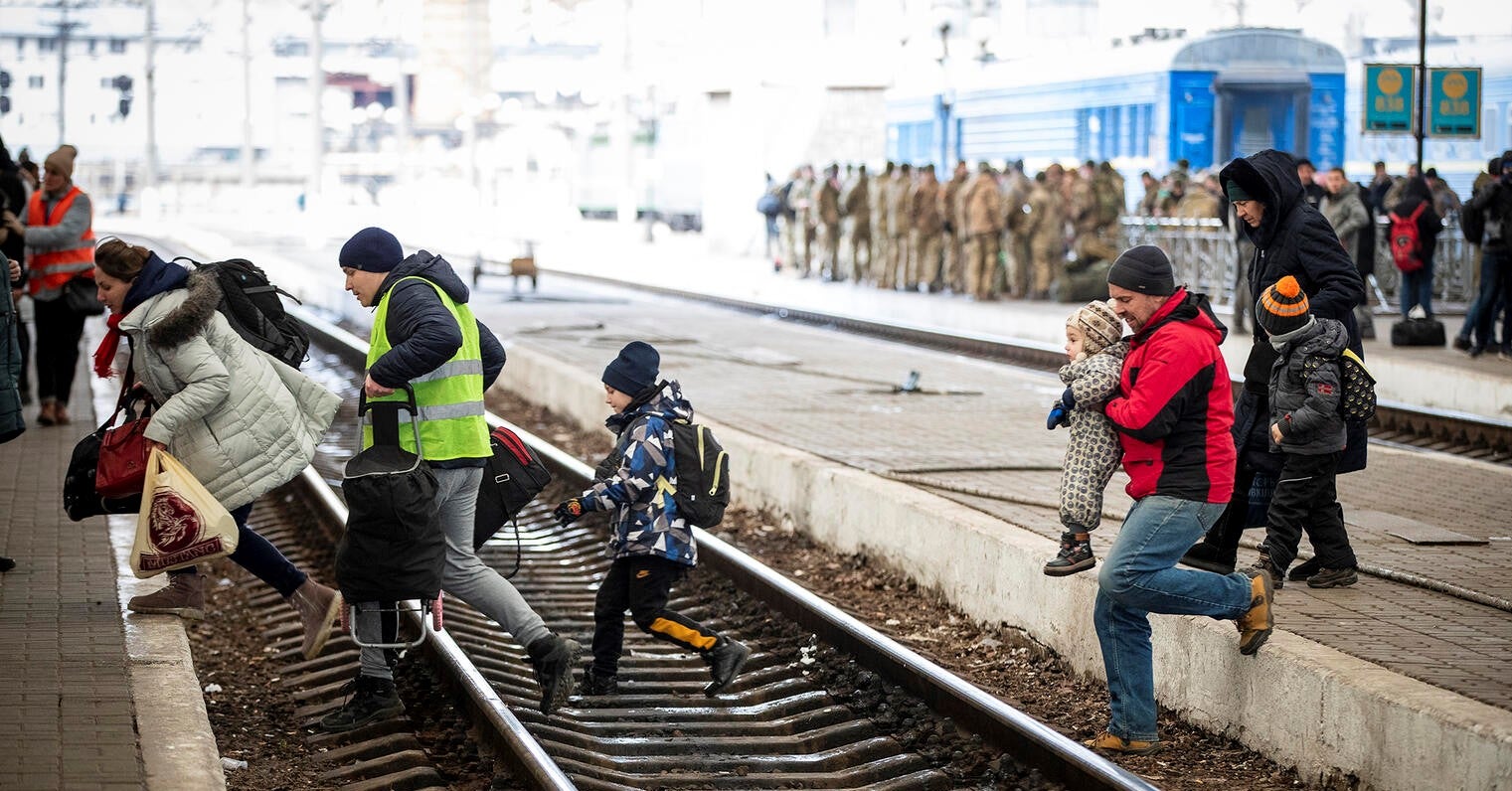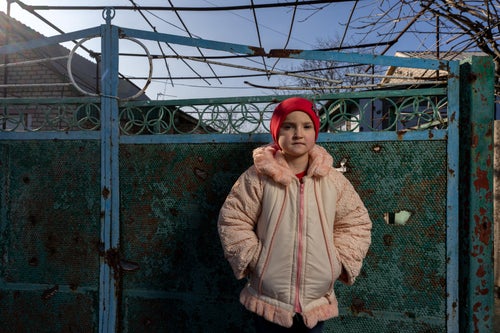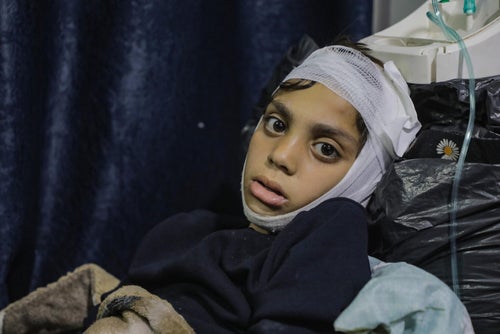At the break of dawn on 24 February 2022, children and families woke to a war they never wanted. The world watched in disbelief as the people of Ukraine were forced to make heart-breaking decisions as their homes, schools and infrastructure were damaged or destroyed around them.
Over 8 million people fled Ukraine as the conflict intensified, seeking refuge in neighbouring countries – Romania, Poland and Moldova. Many others travelled further afield and across oceans to escape the chaos and devastation. They left everything behind, including their loved ones.
As we mark one year since the war in Ukraine begun, we hear the stories of how 20-year-old Valeriia and the family of Oleksander, Yuliia and their seven-year-old son, Matvii, fled the war to start a new life in Sydney.
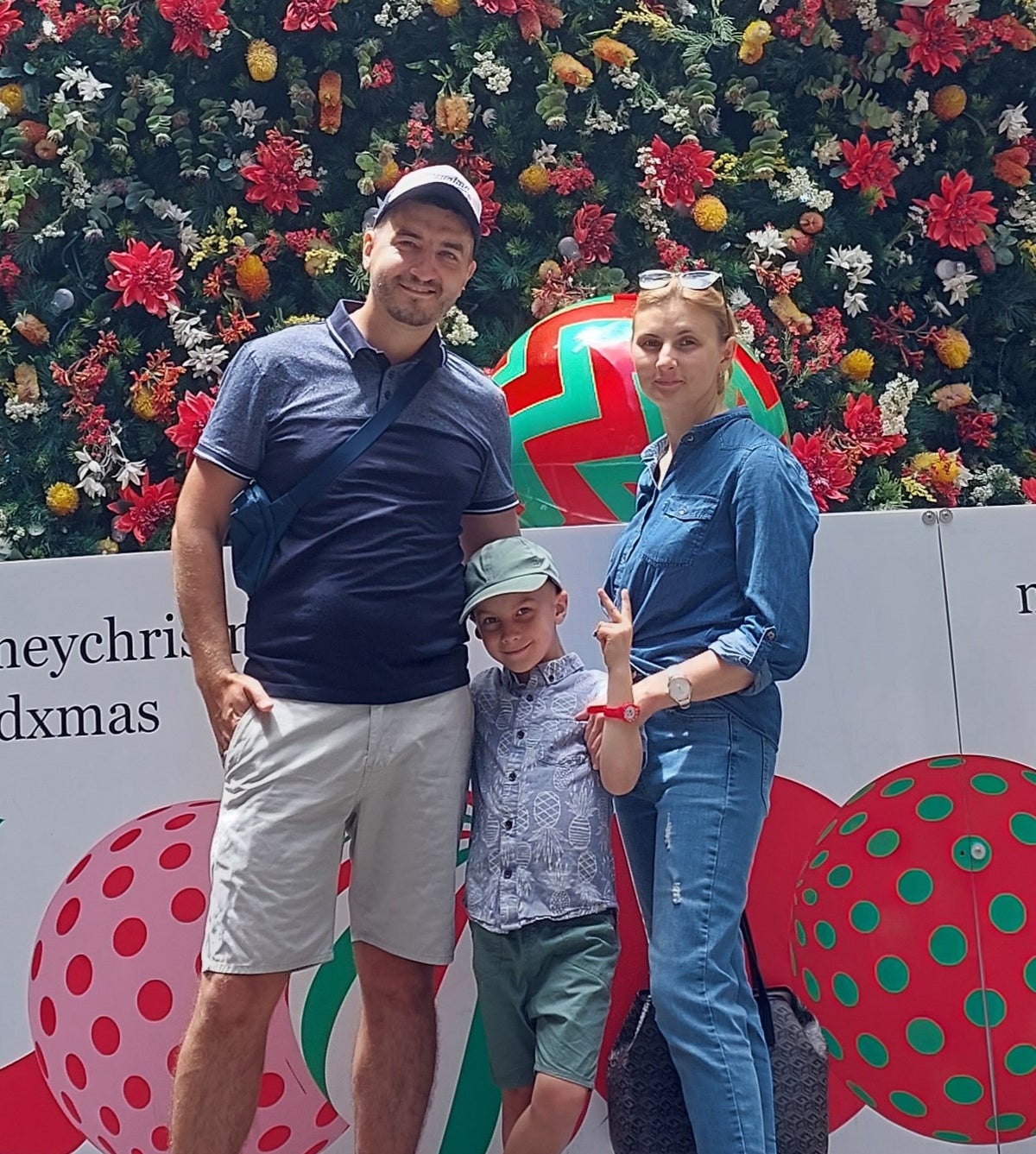
At the onset of the war, a family went searching for peace.
As they prepared for their seven-year-old son Matvii to start school in Kyiv for the first time, parents Oleksander and Yuliia set aside rumours circulating about a possible attack on Ukraine. They believed nothing would eventuate.
"We had a very good and happy life. We had good jobs, Olek, a financial manager and I, an attorney, and we lived in the same apartment building as my sister. It was a busy time for us as we were preparing for Matvii's first year of school," explains Yuliia.
At 4 am on 24 February 2022, Yuliia woke to her phone ringing. Her sister said she had heard bombing, and Kharkiv was being bombed very hard. Yuliia and Oleksander grabbed Matvii, packed a bag with documents, necessary food and water and went to the building's underground parking.
"We didn't know what to do, how much time we had or how fast the rocket was flying. I just remembered my son. He understood everything very well. His reaction was very quick. When we said we must go underground, he knew he must pick himself up very quickly."
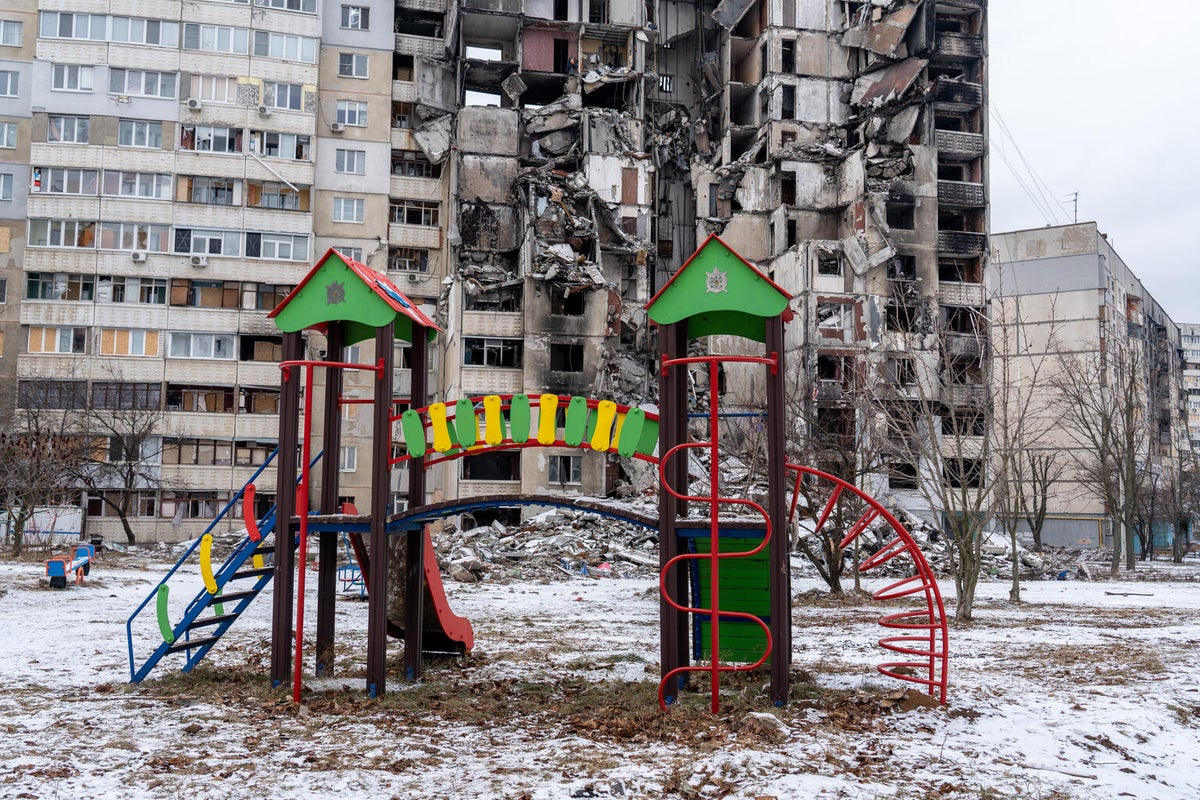
The family stayed in the car park all day and slept in the car at night. They only came up to get reception on their phone or food from their apartment. The following morning Oleksander called his mother, who told him tanks were coming to Kyiv. He decided to take his family to his parents, where they would be safer.
"We were driving very fast. We started hearing bombing and shooting, and we didn't know how much time we had. I remember this terrible alarm noise, and I hugged my son very tight and prayed as we drove very fast. When we were driving, we saw tanks, and we didn't understand if they were our tanks or Russia's."
They stayed with Oleksander's parents for three weeks. At night they went across the road to the school that Oleksander attended as a child. It was a safe place for the community to be.
"After three weeks, it was just escalating, and huge rocket attacks, military planes were flying, and the noise were really scary. You never felt such stress and emotions, and you don't know what to do," explains Oleksander.
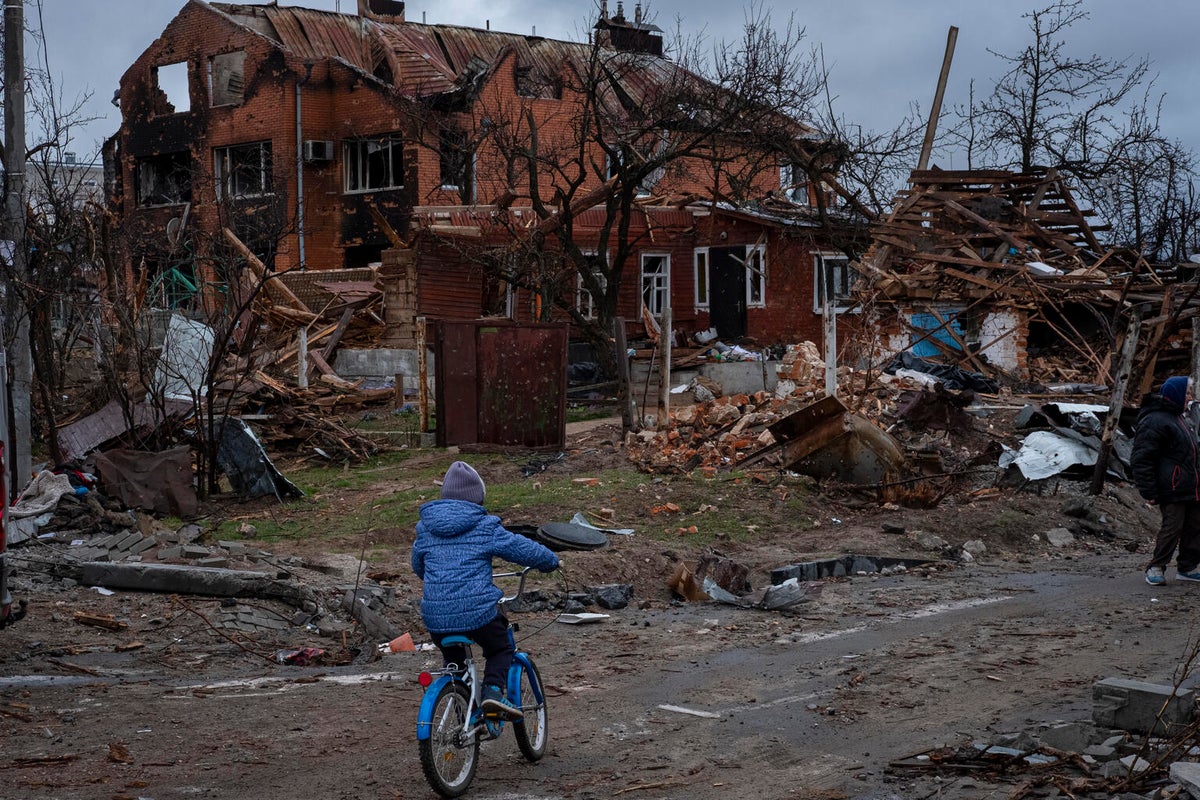
Knowing they needed to get to safety, the family decided to travel to Romania, where Oleksander's manager was located. For health reasons, Oleksander had a legal right to cross the border with his family.
"It was the hardest day in my life. When we came to the border with Yuliia and Matvii, I imagined I could not cross. We decided to move to Romania for one reason, to keep our son safe and minimise the effect of war on him mentally," remembers Oleksander. "We successfully passed and joined with my manager, who drove seven or eight hours just to pick us up."
The family stayed in an apartment in Romania for a month while they figured out their next step. After receiving advice from Yuliia's friend in Sydney, they decided to move to Sydney, Australia.
"It was very hard here because our lives started from a blank. We just had laptops and winter jackets, which are useless here in Australia. When Matvii started school, Yuliia smiled for the first time when she saw him in his uniform. We were so happy for him and proud that he is happy and in peace."
Yuliia continues, "In Matvii’s mind, it's like an adventure. He comes to a new country with many animals he hasn't seen before and a different climate and language. He is a friendly guy and has a lot of friends in the class."
Now, Oleksander works in finance, and Matvii is doing well at school. They are worried for the safety of their parents, who chose to stay in Ukraine, and wondering when they can return to see them again.
"It's very hard, and it's very terrible. One thing that makes me calm and happy is that Matvii is safe. When I see his smile, it makes me happy even if my soul and heart are destroyed," says Yuliia.
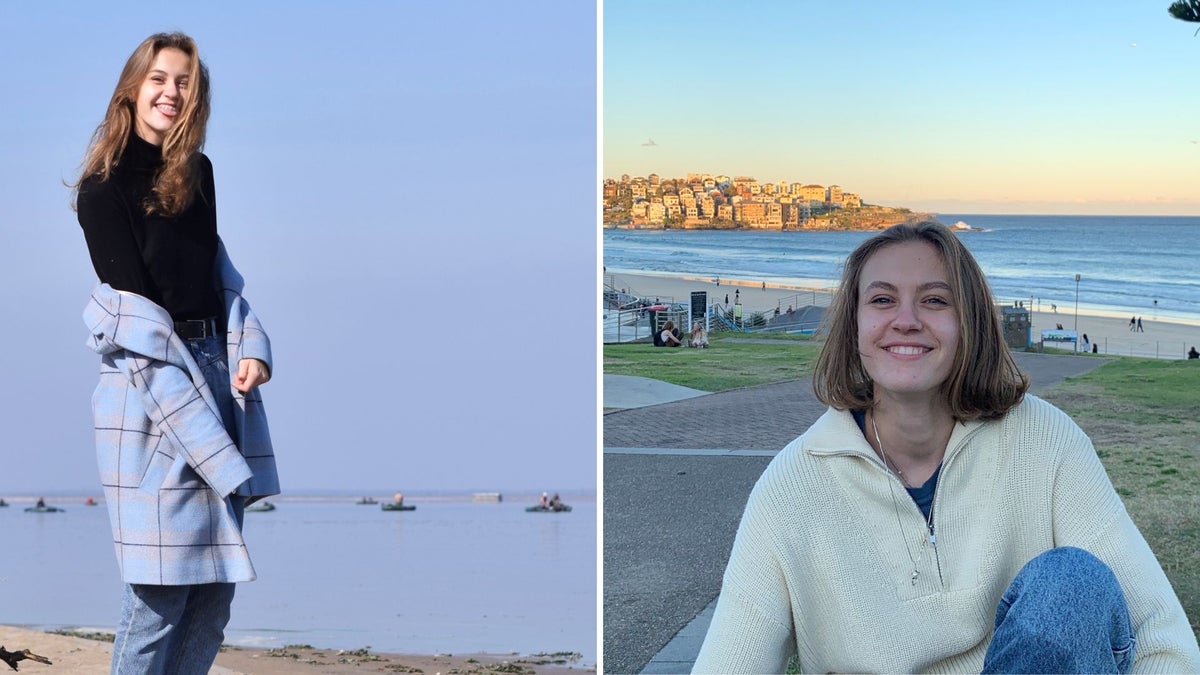
Finding safety in Australia with family
Working as a barista while studying at a university in Kyiv, 20-year-old Valeriia dismissed rumours of a possible attack on Ukraine as just that, mere rumours. Like any student, Valeriia was happy - living in a dorm on campus, hanging out at coffee shops and being in nature. She never imagined that her world was about to change.
Around 4.30 am on 24 February 2022, Valeriia woke to girls talking loudly in the corridor of their dorm rooms. Bleary-eyed, Valeriia went into the hall, and as the girls began to explain what was happening, they felt a thunder-like sound close to them, and that’s when she realised it was real.
“I packed my clothes and found a ticket for a train back to Cherkasy. I stayed there for three weeks with my mum. On the second day of the war, my dad joined the army. He is still there and is a surgeon. My mum is still working there. She is a doctor as well.”
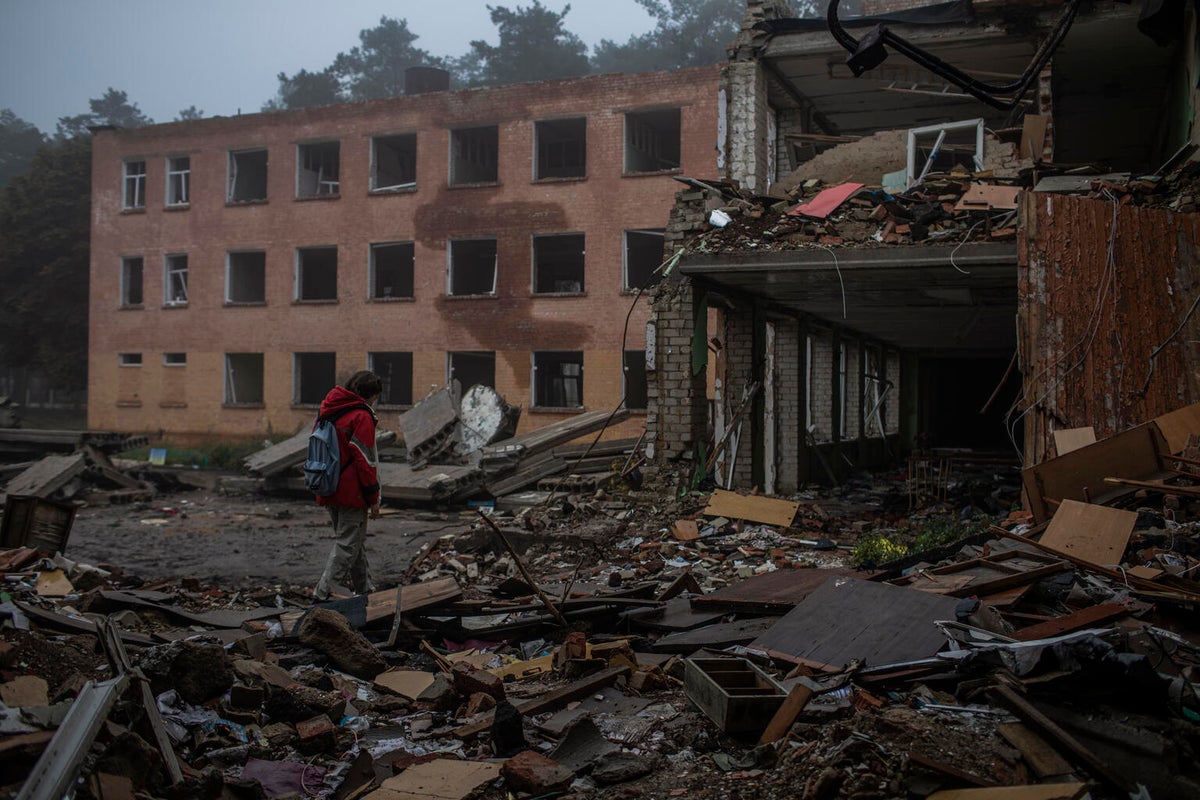
Valeriia grew up in Cherkasy, about two hours from Kyiv in central Ukraine, in an apartment opposite the river where they had views of the water and trees – a natural beauty she still longs for.
“While I was with my parents, my dad’s cousin Yulia in Australia called my mum and asked if she wanted to send me to Australia so I could be safe,” Valeriia remembers. “I didn’t believe the war would be for too long, so I thought maybe I should go, and I could come back anytime. Yulia texted, saying she applied for my visa, and the next day, she had it.”
Within a day, Valeriia was boarding whatever train she could get onto with her best friend, who was fleeing to Poland. Together the girls endured a 16-hour train journey from Cherkasy to Lviv in western Ukraine.
"It was terrible memories. It was -5°C outside; I was so cold. I didn’t have a seat, so I stood without sitting, moving, or going to the toilet for 16 hours. In Lviv, I found a place where I could have a shower. The next day my best friend and her sister got a bus to Poland, and I got a train to the Czech Republic. I had a friend there, and I stayed with them for a week to rest, then I flew to Australia."
During the first months of living in Sydney, Valeriia stayed at her cousin’s house, longing to go home. One year on, Valeriia continues to live with her cousin in Sydney’s north, but now her life looks vastly different. Through friends, Valeriia discovered bouldering and rock climbing and the people within that community.
“I miss my family and friends so much. You can’t imagine. I never stayed so far from my family and for so long. But I now have a life here,” says Valeriia. "I am grateful because I now work in admin at an engineering company, have a boyfriend, and have visited the Snowy Mountains and Tasmania."
As we mark one year of devastation and displacement, children have endured a year of violence, trauma, loss, destruction and displacement. It has also been one year of strength, courage and love. Now is not the time to look away. The children of Ukraine need your help more than ever.
Related articles
Stay up-to-date on UNICEF's work in Australia and around the world



